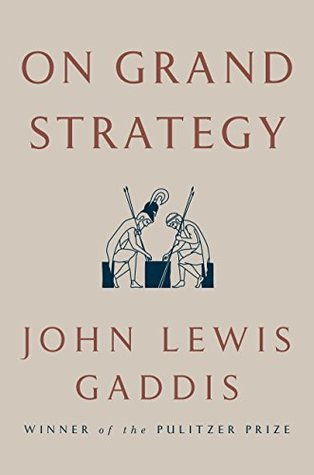More on this book
Community
Kindle Notes & Highlights
Theory, then, serves practice. And when practice corrects theory—when it removes theorists’ horse blinders—it returns the favor, preventing stumbles off cliffs, into swamps, and toward Moscow.
From which they know that ends, potentially infinite, can never be means, which are poignantly finite. That’s why war—explicitly in Clausewitz, implicitly in Tolstoy—must reflect policy. For when policy reflects war, it’s because some high-level hedgehog—a Xerxes, or a Napoleon—has fallen in love with war, making it an end in itself. They’ll stop only when they’ve bled themselves bloodless. And so the culminating points of their offensives are self-defeat.
The point was to deny slavery moral neutrality, to return it to the legality reluctantly granted it by the Founders, and thereby—like them—to preserve the Union.
War was, then, for Lincoln—despite his never having seen this sentence—“an act of force to compel our enemy to do our will.”67
And Lincoln saw that a civil war—which he’d allowed to be forced upon him—might also permit the American state, tainted by slavery, to save its soul.
Or, as he’s said to have added: he “wanted God on his side, but he must have Kentucky.”
Lincoln said nothing of slaves held in states remaining loyal: he could hardly have claimed war powers if not at war with them.80 He also knew, though, that he didn’t have to: the more blood the Union shed the more just—and, therefore, the more legitimate—emancipation would become.
Now, the first interest of all countries is the preservation of national independence. It follows that England, more than any other non-insular Power, has a direct and positive interest in the maintenance of the independence of nations, and therefore must be the natural enemy of any country threatening the independence of others, and the natural protector of the weaker communities.
Maritime supremacy, then, demanded not just the balancing of power on continents that Mackinder had emphasized, but also the reassurance of states bordering seas that the single dominant power at sea respected their interests, as well as its own.
Delaying entry would also allow Wilson to choose the moment: if he did this carefully, House assured him, then he’d be in a position to determine the war’s outcome, not just through military deployments, but by designing a new international system to replace the one that had failed by allowing war.43
Carthaginian peace
The Great War, however, was a pre-Clausewitzian regression: would any of its original participants have entered it if they’d foreseen its costs?59
Wilson had again aroused expectations, this time without ways to meet them. Maybe, like the Athenians after Pericles, he confused strengths with hopes.
Ideological purity was less important to FDR than geography, balances of power, and the requirements of navies:
One of FDR’s first actions as president was to upgrade the United States Navy—but as a job-creating public works project, he thought it prudent to claim.87 For Roosevelt also doubted his country’s willingness again to make overseas commitments.
He brought two great wars fought on opposite sides of the earth to almost simultaneous victories at a cost in American lives of less than 2 percent of the total for all the participants in those wars.106 His country emerged from them with half the world’s manufacturing capability, two-thirds of its gold reserves, three-fourths of its invested capital, its largest navy and air force, and its first atomic bombs.107 There were, to be sure, pacts with devils in all of these: strategies, like politics, are never pure. But as historians Hal Brands and Patrick Porter have pointed out, “If this wasn’t
...more


